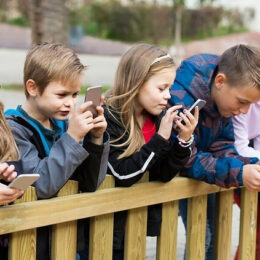6/13/2010 – Jeffrey Eckert –
Children are being dragged into adult situations on a more frequent basis. A child’s age of innocence is diminishing, and children are now living extended versions of young adulthood due to the immature actions of the adults responsible for raising them. Parents should be a buffer between their children and the world. All too often, children are becoming the person the parent goes to for emotional relief. The parents involves the child in the particulars of their messy divorce, money problems, health problems, and even sexual relationships.
In generations past, these problems occurred, but the children were kept out of the discussion. Adults spoke to other adults (family members, peers, professionals) about their problems. That is not to say children did not sense adverse events, but they were comfortably distanced from the nature of the problem and were not thrust into an adult role of trying to resolve it.
Many parents expose children to age-inappropriate entertainment. I know kids will always try to see the “verboten.” But we as parents need to shield them as much as possible. In earlier times, adult entertainment was reserved for age-appropriate clubs and theaters, and behind closed doors. Now we watch and participate in confusing and disturbing adult behavior in front of children. Kids emulate it all with video games, sex, and other risky behavior. We reap what we sow.
Once kids reach school age, they face another set of stressors: educators. Today, the progressive education system has removed emphasis on the fundamentals of reading, mathematics, writing, and critical thinking. Gone are the days when students learned of America’s exceptional and extraordinary history. The social studies of today have become much more focused on “social responsibilities.” This is done by explaining to children that the United States is responsible for most of the pollution, racism, and imperialism in the “world community.” I finished high school almost twenty years ago and recall in first grade reading in my Weekly Reader newspaper about how badly industry was polluting rivers and streams. I love nature and live near the outfall of the San Diego River. I see firsthand every time it rains what effect pollution has on the ocean. But when I was five, there was very little I could do to prevent industrial pollution. The best thing I could have been taught was to keep my own part of the world (my desk, my bedroom, and myself) free from pollutants. It wasn’t my place to condemn anyone, because really, what did I know? I was just a kid. I say let adults solve the world’s problems. It will be the kids’ turn soon enough to deal with the mess we are leaving them.
Teachers also have a nasty habit of including children in their labor disputes. They inform children that “because their Mommies and Daddies don’t want to give more of their money to the government for schools to pay teachers, they will lose their job.” This is incredibly egregious because we entrust teachers to provide our children with a moral foundation, one that should include professionalism and the self-restraint to rise above their situation and complete the task they are required to do. Children have no way of understanding wages, labor negotiations, taxes, or any other form of business. They do not earn a wage or support themselves, so they cannot comprehend the taxpayer’s or school’s financial dilemma. So don’t tell me you are giving them credit for protesting something they can’t comprehend. They are just doing the teacher a favor. Also, there is no need for the teacher to be a student’s “buddy.” Students need authority figures more than they need another buddy.
Our society needs to stop stressing children out. We try to protect them and wind up preventing them from learning necessary lessons. Falling off the swing set hurts, but it is not a litigious event. Bad behavior in class or elsewhere warrants consequences. We should stop being afraid to hurt a child’s psyche by punishing him. Winning is kinda the whole reason to play the game. Being picked on in dodgeball or not being picked when choosing sports teams is just a reason to practice more, try harder, or find somewhere else to excel and succeed.
We, as a society, need to teach each other that it is not acceptable to be a selfish or irresponsible parent or educator. Adults should support and help each other to raise children. Adults should respect children, and if their authority is abusive or goes too far, then children should not be witnesses to adults “dressing down” each other. This is incredibly confusing to them.
I remember that in my childhood, I was fairly oblivious when it came to my parents’ divorce — or, for that matter, my father’s heart attack. I was ten years old at the time both happened and was quite a snoopy little kid, if I do say so myself. If my parents argued, they did it when I was away or asleep. I heard my dad or mom vent about the divorce very infrequently.
I knew my dad had a heart attack and that he was sick and needed rest to recover, but that was really all. At some point I was sent to live with my aunt, and when I returned, my parents had separated. They explained that this was the way it would be. It was hard to accept at first, but I was always made to understand that it was not really my business. It was an adult thing, and it was not my fault. That was all I really needed to know as a kid.
People my parents’ age, who grew up in the Great Depression, say they were “poor, but they never knew it.” Their parents never burdened them with poverty. Yet they can all tell tales of hard times. Think of the attitudes of today’s youth if they are not outfitted with latest hundred-dollar pair of sneakers sneakers. Children are happier and healthier not knowing everything.
In reality, it should be the “child’s right,” as much as is possible, to mature before having to face tough decisions. Life can change in an instant. Death, divorce, and other hardships can shorten childhood, and that is unavoidable, but the more time children have to develop and to slowly comprehend this world, the better-adjusted they will be. The less we stress them out with things they cannot resolve or are too young to understand, the fewer Columbines we will have, and the fewer messed up adults we will have as well.
HT: American Thinker



